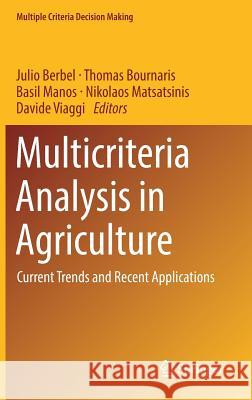Multicriteria Analysis in Agriculture: Current Trends and Recent Applications » książka
topmenu
Multicriteria Analysis in Agriculture: Current Trends and Recent Applications
ISBN-13: 9783319769288 / Angielski / Twarda / 2018 / 321 str.
Kategorie:
Kategorie BISAC:
Wydawca:
Springer
Seria wydawnicza:
Język:
Angielski
ISBN-13:
9783319769288
Rok wydania:
2018
Wydanie:
2018
Numer serii:
000781143
Ilość stron:
321
Waga:
0.63 kg
Wymiary:
23.39 x 15.6 x 1.91
Oprawa:
Twarda
Wolumenów:
01
Dodatkowe informacje:
Wydanie ilustrowane











